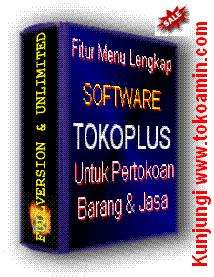to do so can be a sign of a serious psychological
problem. In our hazardous world, anxiety is a
strategy the body uses to help the mind recognize
danger and keep well out of its way. As with most
mental illnesses, it's not the presence of anxiety

alone that creates problems. It is more about how
severe it is and how much it gets in one's way of
life or quality of living.
Most people feel anxious at some time in their lives.
However, only about five per cent of people
experience severe anxiety and rarely seek
professional help. Anxiety is a mixture of physical
and mental symptoms. They are part of what
psychologists call the "fight or flight" response.
When the body is under threat it automatically
prepares either to defend itself or run.
Anxiety is a normal reaction to stress. It helps one
deal with a tense situation in the office, study
harder for an exam, or remain focused on an important
speech. In general, it helps one cope with the tasks
and demands of everyday life. But when anxiety
becomes an excessive, irrational dread of everyday
situations, it can become a disabling disorder.
Fortunately, effective treatments for anxiety
disorders are available, and research is yielding new
and improved therapies that can help most people with
anxiety disorders lead productive and fulfilling
lives.
However, studies have shown that having a healthy
diet may reduce signs and symptoms of anxiety.
Although food can't cure an anxiety disorder,
consider some diet changes and that would benefit a
severely anxious person:
- Avoid or limit caffeine intake as much as
possible. Caffeine is present in many soft drinks,
not just in tea and coffee and it can set up its own
vicious cycle. It can speed up heart rate and disrupt
sleep --- which later on become prevailing signs of
anxiety. Trying to overcome tiredness by drinking
more caffeine only makes the long-term problem worse.
- Avoid too much alcohol. Similarly, alcohol
can worsen the sy mptoms of anxiety, and disrupt
sleep. Many people reach for a drink to calm their
nerves, but the consequences of overindulgence can
outweigh the benefits of initial relaxation. For
some, a hangover, insomnia, and dehydration make one
feel worse than before one had a drink. In excessive
amounts, alcohol can actually act as a depressant,
making the drinker feel sluggish or more anxious.
Alcohol, like a simple sugar, is rapidly absorbed by
the body. Like other sugars, alcohol increases
hypoglycemia symptoms. It also causes mood swings.
- Eat complex carbohydrates, also known as
carbs. During anxious times, turn to comforting
carbs. These foods act as a mild tranquilizer by
increasing the amount of serotonin, a calming
neurotransmitter in the brain. Complex carbs such as
potatoes, wholewheat bread, and pasta take longer to
digest than sugary simple carbs like white bread.
That way, one can stay fu ller longer and blood sugar
is likely to stay steady, eliminating stress and
anxiety.
- Be sure to drink eight or more glasses of
water a day. Dehydration can lead to fatigue,
headaches and stress. One should be well-hydrated and
drinking lots of water a day can decrease symptoms of
anxiety.
- Take multivitamins and mineral supplements. B
vitamins, whose role is to unlock the energy in food,
are crucial. Vitamin B-6 helps manufacture serotonin
in the brain. Choose a daily supplement that supplies
100 per cent of the daily recommendation of all
vitamins and minerals.
Although tension and daily stresses are unavoidable,
one can relieve tension and manage stress and anxiety
better by watching out for what one eats and what one
does not eat. Remember that a healthy body and a
healthy mind are often one and the same thing.
Watch This Amazing Videos To Learn How To Lose Weight Fast
Iklan Anda Terpasang Karena Bantuan Software Iklan Massal
 :.
:.
















Tidak ada komentar:
Posting Komentar